Tenants at 4625 S Drexel formed a tenants association. The building was in horrendous condition and the owner of the building in April of last year decided to close the building and evict all the tenants. The tenants flyered the building and met monthly. They all called the city to report the building’s numerous building code violations and to request an inspection. The City inspected the building. The City told the owner to fix the building. Then the heat went out. The landlord tried to use this as an excuse to evict all the tenants and issued everyone 30 day notices to vacate the building. At court the judge ordered the owner to fix it. Then the water went out. The judge ordered the landlord to pay each of the 17 remaining tenants $1200 relocation assistance. This was on top of the 3 months the tenants did not have to pay rent. The tenants won $51,000 plus months of additional time to find a new residence.
Category: MTO News
News and updates from MTO.
What’s New at MTO? Plus, Ways to Support Chicago Renters with MTO
Dear Friend,
Thank you for being a part of the Metropolitan Tenants Organization community.
While it was a difficult decision, our team decided to cancel the Annual Spring Affair which was scheduled for Tuesday, April 21st at 6:30pm because we care about your safety and well-being.
Although we won’t be gathering in-person, MTO has #5 ways outlined below to help raise $30,000 for our Tenant Stabilization Programs and Services as we work to prevent homelessness and keep low-income families housed.
We are experiencing high call volume about threats of eviction, illegal lock-outs, unreasonable rent increases, and concerns about the lack of precautions in place to limit the spread of COVID-19. We are dedicated to giving Chicago renters the answers and support needed in real-time to stabilize their housing. If you or someone you know are having issues with their landlord or apartment call our Tenants’ Rights Hotline at 773-292-4988. For swift results get your answers and online tools via our app and web page here at Squared Away Chicago.
We believe that with your help, we can lessen the impact of coronavirus on our mission to educate, empower, and organize low-income renters about their rights. Thank you for your support during this challenging time for our organization and our community as a whole.
Sincerely, Team MTO
#5 Ways You Can Continue to Support MTO
#1. Donate Your Ticket(s) OR make a donation here to MTO’s Tenant Stabilization Programs & Services
While the Annual Spring Affair is cancelled and we explore ways to get together virtually, you can choose to donate the cost of your ticket(s) to benefit housing stability for low-income renters in Chicago. You can choose to donate here and or share the link https://bit.ly/39y69ey with friends and colleagues. If you seek a refund contact Aisha- aisha@tenants-rights.org.
#2. Make your online purchases through Amazon Smiles.
MTO supports human rights. We stand in solidarity with labor movements for access and justice, like Amazon workers in Chicago who organized and won PTO for all workers. Our constituents who are Amazon shoppers can choose to shop https://smile.amazon.com/ and reply “Metropolitan Tenants Organization’ when asked about your supporting organization. 0.05% of proceeds from your purchase goes to MTO.
#3. Stay tuned with Chicago Renters & Housing Advocates via MTO Weekly E-Newsletter
Choose to read and share our weekly e-news alerts with stories about what Chicago renters are dealing with during COVID-19 pandemic, housing resources, and updates on our fundraising, housing justices campaigns, and policies.
#4. Let’s See if Your Employer Will Double Your Donation
Right now, every little bit helps. If you’re able to donate here today, together let’s find out if your company will match your gift.
#5. Join Us on Facebook Live https://www.facebook.com/MTOchicago/We can’t gather in person, but we can still gather! Join us in upcoming fun-raising events and discussions on Facebook Live. Follow us on Facebook so you don’t miss it!
Working Remotely, Our Offices are Closed in response to COVID-19
To our community In order to protect the health and safety of the Metropolitan Tenants Organization’s staff, volunteers, members and community, our office are closed until March 30th. More communications from our team is underway. Thank you for patience.
We encourage everyone to follow CDC and Chicago Department of Public Health guidelines to limit social contact as much as possible.
MTO’s staff and volunteers will continue to answer our tenants’ crisis line and to provide as much assistance as possible over the phone from our homes. We promise to remain vigilant during this period of emergency to advocate for the housing rights of everyone. If you need assistance, please call 773-292-4988 to reach our crisis hotline and leave message.
Additional Resources on COVID-19
We understand the importance of timely, accurate and helpful communication to visit trusted sources of public health information,
including:
Centers for Disease Control and Prevention
Chicago Department of Health
World Health Organization
The American Public Health Association has also released COVID-19 fact sheetsin English, Spanish and Chinese.
BHF Tenants Work Together

Tenants living in buildings owned by the Better Housing Foundation continue to advocate for the City of Chicago building court system to improve their housing. One such family – the Finkle’s – reached out to Amy de la Fuente, one of MTO’s Healthy Homes organizers, about mold, mushrooms and water damage in their unit. Ms. Finkle is wheelchair bound and lives with her son. She asked her son to email photos of the unit conditions to Amy, who in turn shared the photos with the program officer from the Community Investment Corporation (CIC), a partner in a citywide effort to preserve the Better Housing Foundation’s buildings. Mrs. Finkle’s son decided to attend the next court hearing to speak about the conditions.
Young Mr. Finkle, who suffers from asthma, attended court. He met with Amy and prepared his talking points. When the judge called his building, he and several neighbors from the building stepped forward to testify. With Amy by his side, Mr. Finkle advocated in favor of safe, decent and healthy housing for himself and his mother. The judge, city attorney and program officer all listened and asked questions. Because of the tenant testimony, the judge authorized the receiver to make repairs related to water damage and to relocate tenants as necessary. As he left the courtroom, Mr. Finkle turned to Amy, shook her hand and said, “Thank you. Thank you so much.” It is strong tenant advocacy, like that of the Finkle family, which leads to positive outcomes for residents living in these buildings.
MTO and CIC, have worked diligently for the past nine months to help preserve affordable housing and keeps tenants stably housed in over 75 failing Better Housing Foundation buildings. The work is ongoing. For more information or to see how you can help, contact Amy at amyf@tenants-rights.org.
Healthy and affordable housing for ALL!
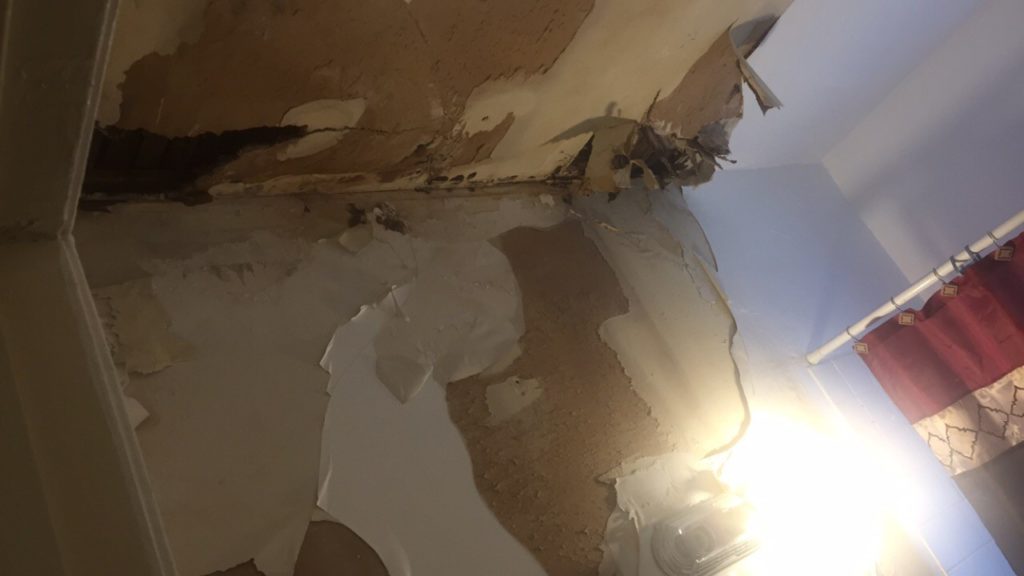
Tenants living in buildings owned by the Better Housing Foundation continue to experience uncertainty even as the City of Chicago building court system attempts to make rulings intended to improve their housing via appointment of limited receivers. Despite these decisions, sometimes tenant concerns can get lost in the shuffle. One such family – the Finkle’s – reached out to Amy de la Fuente, one of MTO’s court advocates, about mold, mushrooms and water damage in their unit. Mrs. Finkle hear about MTO when her neighbor attended building court the previous month After speaking with Amy, Mrs. Finkle asked her son to email photos of the unit conditions to Amy, who in turn shared the photos with the program officer from CIC in charge of the building. Mrs. Finkle, who is wheelchair bound, also encouraged her son to attend court on her behalf to speak about the conditions.
Young Mr. Finkle, who suffers from asthma, attended court. He met with Amy and prepared his talking points. When the judge called his building, he and several neighbors from the building stepped forward to ask questions and express their concerns. With Amy by his side, Mr. Finkle advocated to safe, decent and healthy housing for himself and his mother. The judge, city attorney and program officer all listened and asked questions. The judge granted the temporary receiver authorization to make repairs related to water damage and to relocate tenants as necessary. As he left the courtroom, Mr. Finkle turned to Amy, shook her hand and said, “Thank you. Thank you so much.”
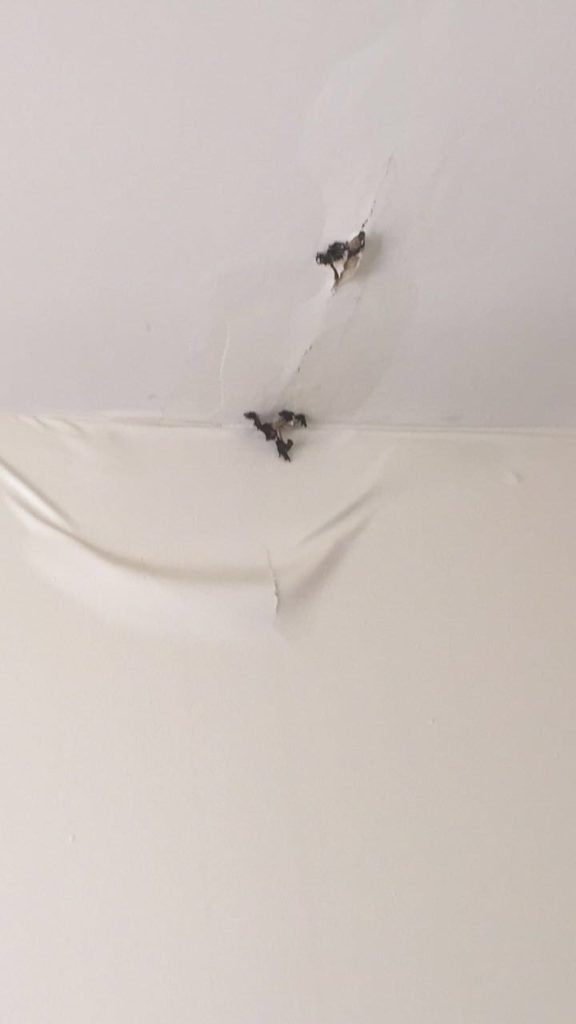
MTO and their partner agency, the Community Investment Corporation, have worked diligently for the past nine months to help preserve affordable housing and keeps tenants stably housed in over 75 Better Housing Foundation buildings. Their work, coupled with strong tenant advocacy, like that of the Finkle family, has led to positive outcomes for residents living in these buildings.
Tenants March on HUD HQ, Win Meeting with Top HUD Official
May 10th 2019
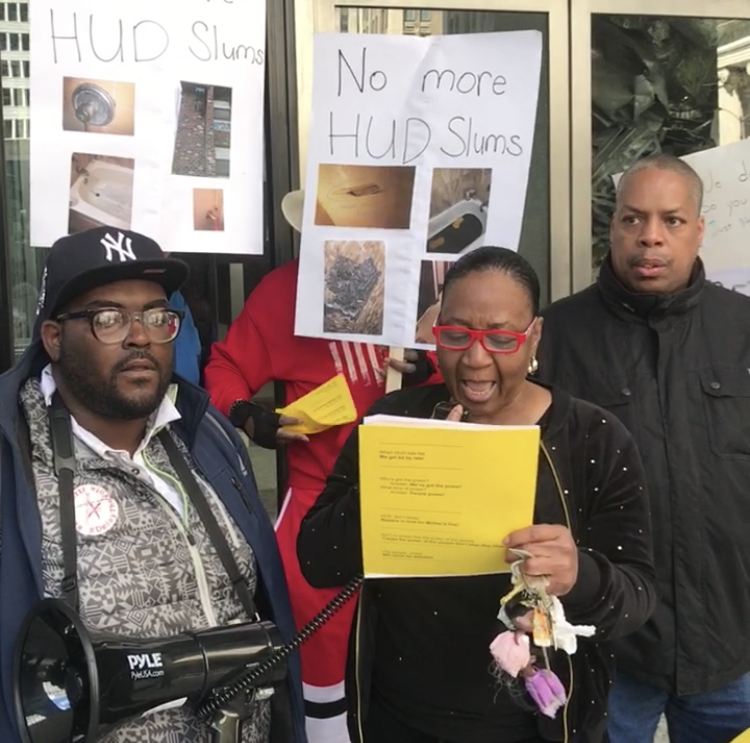
Barbara Jean Wright Courts, speaks about the living conditions at the complex.
Chicago, IL. – Twenty-five tenants and their supporters picketed outside the Housing and Urban Development (HUD) offices at 77 W Jackson in downtown Chicago today. The tenants were sick and tired of inaction on the part of their landlords and the lack of oversight by HUD. One tenant asked, “How can I celebrate Mother’s Day in my home when my kitchen cabinets are falling apart?”
It was almost a year ago today that HUD representatives met with tenants at a Town Hall meeting of subsidized renters organized by the Metropolitan Tenants Organization (MTO). At the Town Hall, HUD representatives promised action. They assured tenants they would come out to the buildings and hold the landlords accountable to very basic housing standards.
For the tenants living in Barbara Jean Wright Courts, Germano Millgate and Indian Trails Apartments, HUD has not made good on its promise. Tenants are living with rats, bed bugs, holes in the walls, elevators that don’t work, plumbing problems and more. One parent, who wished to remain anonymous out of fear of retaliation, is worried that DCFS is going to take her children away because the conditions are so bad.
Tenants were preparing to deliver a letter to HUD officials demanding a meeting. As the tenants chanted, “HUD don’t delay, Repairs in time for Mother’s Day!” outside of HUD’s downtown office, Joseph Galvan, HUD’s Regional Administrator for Region V, came out to talk. Jesse Johnson of Barbara Jean Wright Court asked Mr. Galvan to meet with the tenants and to inspect the complexes. Mr. Galvan agreed to inspect the above three apartment complexes and to meet with the tenants in his office on May 31st. The tenants left feeling fired up and ready to keep the pressure on HUD and their landlords to provide decent and safe housing.
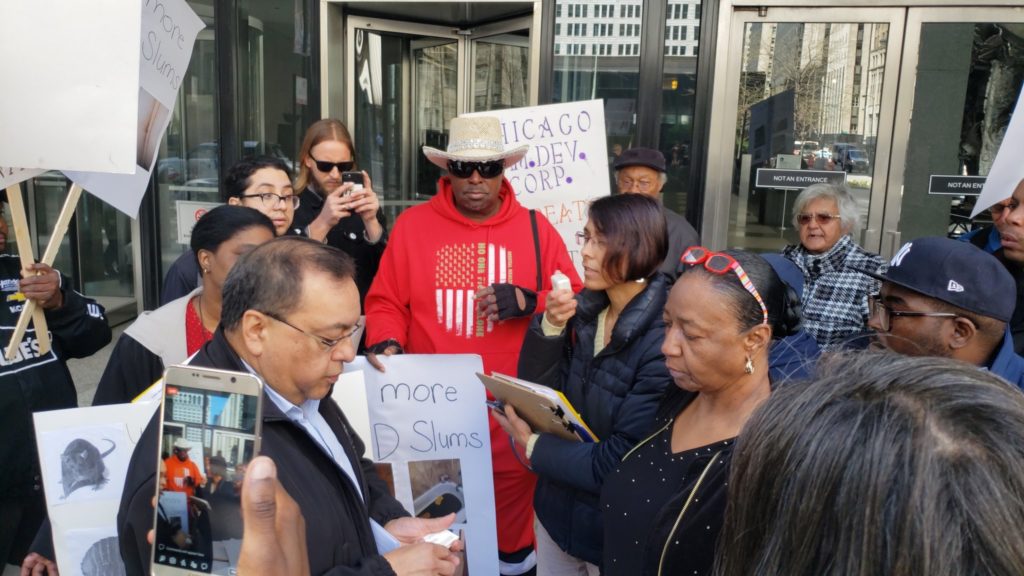
MTO’s Black History Month hero: David Wilson
February is Black History Month, a time to remember and celebrate the people and the history of the African diaspora, and we’re honoring staff member David Wilson as MTO’s Black History Month hero. The following short story is part of what makes David and his work so special.
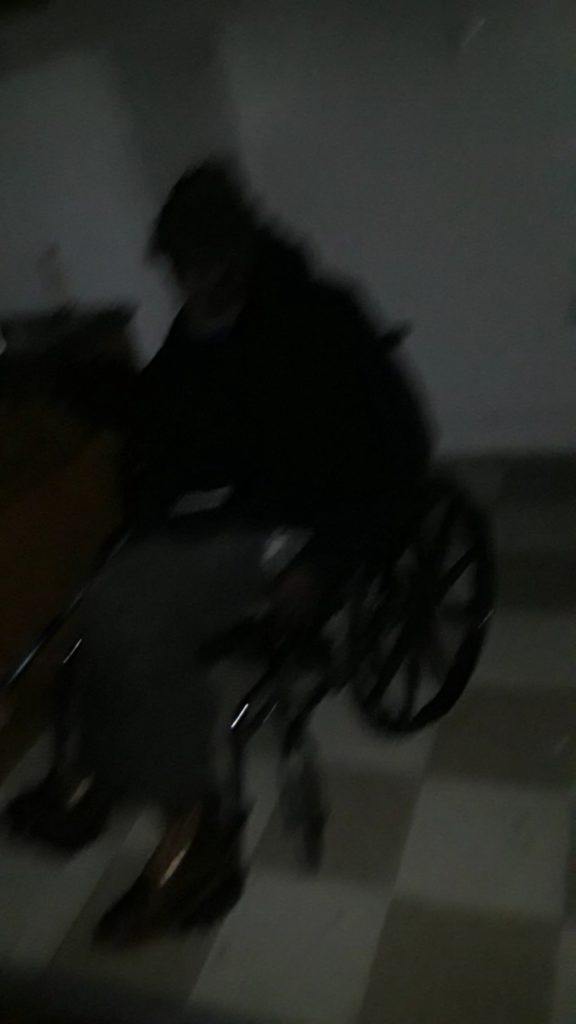
“I don’t know what I am going to do but the property manager is over here threatening to change the locks and lock Mr. Roberts in. There’s no heat, or water, and the lights have been turned out!”. It was 4:30PM on February 11. David called the office to relay what was happening inside Mr. Roberts apartment at 7907 S Laflin. “They’re threatening to arrest anyone who enters the building to help him. I am not going to let the property manager do this” he said. For years the previous owners had allowed the building to slowly deteriorate. The current owner just wanted to vacate the building and force the tenants to move, so they quit doing repairs, turned off the water and heat, and threatened the tenants with invalid eviction notices. But the tenants fought to preserve their home against the unjust eviction.
David and Victoria Ogunsanya, an attorney from the Lawyers Committee for Better Housing, were at the building because the tenants had just negotiated a cash settlement to move-out. Mr. Roberts, a 70-year old black man who uses a wheelchair, was the last remaining tenant. For many like Mr. Roberts, this building was home. One tenant had lived there for 28 years. Mr. Roberts had lived in the building for more than 10 years. He lived on the second floor, which was not the best situation because he always needed assistance to go out. Even though the conditions were horrendous by the end, Mr. Roberts was more terrified of ending up in a shelter. This place was his home; he could afford the rent. And now his property manager was threatening to put him on the street. David didn’t budge. He let the manager know that there was no way Mr. Roberts was going to be left alone in the cold, dark building. With the joint effort of MTO and other tenants, we were able to find him a place to go. In the end, with the help of six strong people, Mr. Roberts was moved to a new temporary home.

When asked about the incident, David said, “It’s really horrible how heartless and uncaring the manager and the owners were. I kept thinking ‘is this how you would want your mom or dad treated?’” Unfortunately, there are too many landlords like this. “Its why tenants need to organize and why Chicago needs better laws”, he said.
David has been with MTO for over 19 years as a tenant leader, Board member and now as a community organizer. Every day David brings his fearless determination and compassion to his job. And Chicago’s low-income renters are better off for it.
Another Eviction Prevented
Lead poisoning has been in the headlines ever since the Flint water crisis brought national attention to the problem. Chicago is grappling with its own lead poisoning crisis, which is hitting our youngest residents the hardest. Imagine if you found out your child had lead poisoning. No parent wants to receive that type of news. Now imagine that your two youngest children – twins – have elevated lead blood levels.
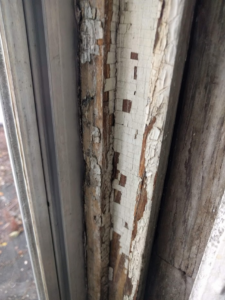
This is how we first met Ms. “W”. After a local health clinic discovered her children’s elevated lead blood levels, Ms W contacted MTO, and a Healthy Homes organizer conducted a visual inspection at her home. The deteriorating plaster walls had started to disintegrate. Half of the window frames had chipped, peeled, and cracked paint. A subsequent inspection by the Chicago Department of Public Health confirmed the assessment – there were high levels of lead in the entire unit.
Over the course of the next few weeks, MTO’s Healthy Homes Organizer provided a letter of support, collected visual documentation of the unit conditions, and shared resources for emergency housing assistance. While Ms. W. explored her options she received more devastating news, her three other children – all under the age of six – had also been poisoned. Now, her landlord was trying to evict Ms W and her family. When an unlicensed worker attempted to remediate the lead without proper safety protocols in place, MTO was able to get a city inspector to stop the illegal abatement, which was further harming her children. Ms W was partnered with a pro-bono lawyer to fight the eviction. While Ms. W. awaits to hear about a new apartment to move to she has expressed immense gratefulness for MTO’s assistance in her advocacy for safe and healthy housing.
But Ms. W wouldn’t have to experience any of this if Chicago had a proactive rental inspection program. The Chicago Healthy Homes Inspection Program (CHHIP) is a campaign lead by MTO to create just that. Hazards like lead, mold, pest infestations, and other asthma triggers can and should be caught before they become a crisis. The current building inspection system is a complaint-based service provided by city inspectors. This means that tenants hold the burden of requesting proper maintenance, property owners can neglect buildings without regular code enforcement, and families are forced to relocate or live with egregious conditions affecting their health. In today’s economy, moving is not always a viable option. We believe that the City should initiate a proactive inspection program that could identify home-based health hazards before they poison our children.
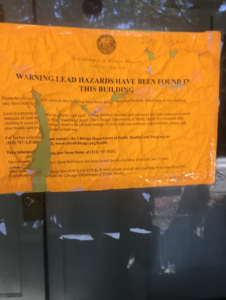
Chicago’s lead poisoning crisis is silently harming our youngest and most vulnerable residents. The Center for Disease Control (CDC) says, “no levels of lead is safe for anyone”. The CDC wants to eliminate lead poisoning in children by the year 2020. If Chicago wants to get serious about achieving this goal, we need to address the substandard housing that exists in our city and make lead prevention and remediation a priority. Our children’s lives are at stake.
MTO is excited to announce our continued partnership with the Chicago Community Trust through a 2nd year of being awarded CCT’s Housing + Health grant. Because of our supporters we are able to assist more Chicago renters and children with housing-health issues and organize for equitable solutions and policies that promote safe, healthy, and decent affordable housing for all. After all HOUSING is a HUMAN RIGHT!
If you or someone you know is in need of information about their rights as a renter or in need of assistance from our Healthy Homes Team contact MTO’s Tenants’ Rights Hotline, M-F; 1pm-5pm at 773-292-4988 or visit our offices M-Th 1pm-4:30pm.
Pilsen Tenants Fight Back Against Mass Eviction

When the tenants at 1722 W 21st Street got 30-day notices saying they must move out of their apartments, they were outraged. Monroe management had recently evicted their neighbors too. The building next door was gutted and rehabbed, with new rents costing $1,500 a month. The tenants at 1722 W. 21st were facing an all too common problem – mass eviction and displacement – an epidemic in Pilsen. Eight families were being asked to leave their homes to make way for someone who could pay more. Eight families facing homelessness so that their landlord can make an extra buck.
To make matters worse, Monroe Management, the tenants said, was intimidating them by threatening to shut off their water and gas. Feeling ignored, tenants decided they would stick together and seek resources to fight back. They engaged community organizers, learned their tenant rights, and immediately wrote a 14-day letter asking for much-needed building repairs (the previous owner had neglected the building). They also sought legal assistance from the Lawyer Committee for Better Housing (who has since accepted their case). Monroe has responded by making repairs in the building, but they still want the tenants out.
On Wednesday, tenants held a press-conference to decry Monroe’s actions and call for an end to the mass gentrification of Pilsen. Shelonda Montgomery (see video below) spoke about how common it has become for big management companies to “buy up” the community, rehab apartments and price out long-term community residents.
Tenants also spoke about the need for rent control and a proactive inspection system in Chicago. One tenant spoke of the need to be engaged in the struggle – together – to fight against housing discrimination. The tenants at 1722 W 21st Street will soon have their day in court, together, thanks to the community members and allies that continue to support our work.
Check out the Twitter story below!
Press conference to denouce abuses to evict poor residents TODAY https://t.co/GNuNqIgohl @LCBetterHousing @TenantsRights @paschutz pic.twitter.com/k48xfflLa5
— PilsenAlliance (@PilsenAlliance) April 12, 2017
Standing with @PilsenAlliance against Monroe Mgmt pushing out tenants in the name of profit. We need rent control in Chicago! #LiftTheBan pic.twitter.com/ATQZs5N5A0
— Jawanza Malone (@jbkm1973) April 12, 2017
@PilsenAlliance Stands for #justice in the #community #Chicago and fighting back against heartless #gentrification https://t.co/RwB84btPfn
— Mariana Lopez (@_ninaflor_) April 13, 2017
Familias latinas en Pilsen temen ser desalojadas del edificio donde viven hace varios años. Sus testimonios y la… https://t.co/phrYSk0Weo
— Natalie Perez (@NatalieUni) April 13, 2017
Shelonda lives here. She’s telling us why she thinks we need rent control (1/2) pic.twitter.com/E5CkrTrcZy
— Chicago Tenants (@TenantsRights) April 12, 2017
@PilsenAlliance @TenantsRights @LCBetterHousing @paschutz Omg this is disgusting and discrimination at its highest level ??? #savepoortenants @heatherf60 @EdinburghTenant check link out?
— Mrs Robertson (@sharonbabes1) April 12, 2017
Miguel Jimenez, community organizer with MTO, talking about why this matters. #PilsenNoSeVende pic.twitter.com/cHcOOiTFmu
— Chicago Tenants (@TenantsRights) April 12, 2017
The question is, how do we become better allies?
 Today is International Women’s Day. On this day, women all across the world receive praises that go unsaid the rest of the year. It’s also a day for women like myself to reflect on what it means to be a woman, and how to stand better in solidarity with other women. Lately, I’ve been thinking about all the women that I’ve met throughout the years as a Healthy Homes Organizer and the struggles they’ve had to face. The story of Ms. May sticks out in my mind.
Today is International Women’s Day. On this day, women all across the world receive praises that go unsaid the rest of the year. It’s also a day for women like myself to reflect on what it means to be a woman, and how to stand better in solidarity with other women. Lately, I’ve been thinking about all the women that I’ve met throughout the years as a Healthy Homes Organizer and the struggles they’ve had to face. The story of Ms. May sticks out in my mind.
I first visited Ms. May this past January, to take a look at the peeling paint in her home and talk a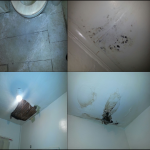 bout how to prevent lead poisoning. When I arrived at the home, it immediately became clear that the situation was much worse than I had initially thought. There was ice on the staircase and a broken faucet, which had gone unchecked for nearly a week. That resulted in a giant ice rink near the house – a clear and present danger to Ms May. Inside the house, there was mold on the kitchen and bathroom walls and holes in the foundation. There were rat droppings from an infestation that had been inappropriately handled by her landlord, with serious consequences.
bout how to prevent lead poisoning. When I arrived at the home, it immediately became clear that the situation was much worse than I had initially thought. There was ice on the staircase and a broken faucet, which had gone unchecked for nearly a week. That resulted in a giant ice rink near the house – a clear and present danger to Ms May. Inside the house, there was mold on the kitchen and bathroom walls and holes in the foundation. There were rat droppings from an infestation that had been inappropriately handled by her landlord, with serious consequences.
Last October she asked her landlord to deal with the rat problem. The landlord, instead of hiring an exterminator,  had brought an unqualified person who ended up leaving a bag of rat poison pellets on top of the dining table. Her three-year-old daughter confused the brightly colored pellets for cereal and ended up ingesting some. Fortunately, the quick actions by Ms May resulted in a full recovery for her little girl. I bring this particular story up, because my initial reaction was to judge. How could someone leave rat poison on the table? How could she not realize that a young child might be attracted to the brightly colored pellets?
had brought an unqualified person who ended up leaving a bag of rat poison pellets on top of the dining table. Her three-year-old daughter confused the brightly colored pellets for cereal and ended up ingesting some. Fortunately, the quick actions by Ms May resulted in a full recovery for her little girl. I bring this particular story up, because my initial reaction was to judge. How could someone leave rat poison on the table? How could she not realize that a young child might be attracted to the brightly colored pellets?
It took me a few minutes before I checked myself and realized that situations like this were never that simple, and it usually was not the fault of one person. Ms May had done the best she could given her circumstances. It was her landlord who should have made the repairs, promptly and efficiently. But that did not happen. The exploitation of low-income tenants, in particular mothers and caretakers is something far too common in the housing market. Women in these situations more often than not have to take on the burden of child-rearing and making ends meet. Adding substandard housing further increases that burden, and the health consequences from inadequate housing are severe. We can’t make every home safe, but we can support the people living there.
So the question is, how do we become better allies? How do we, as fellow women, lessen t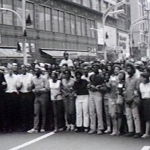 he burden of so many other Chicago women like Ms May? You can begin to stand in solidarity by calling your alderman and supporting the Chicago Healthy Homes Inspection Program that is designed to enforce building code standards and protect renters from health hazards. A move from the current building inspection system will help us prevent another story like Ms May’s and helps us in the effort to create safe housing for all. Healthy and thriving lives start at home, which is why every family should have safe, decent and accessible housing!
he burden of so many other Chicago women like Ms May? You can begin to stand in solidarity by calling your alderman and supporting the Chicago Healthy Homes Inspection Program that is designed to enforce building code standards and protect renters from health hazards. A move from the current building inspection system will help us prevent another story like Ms May’s and helps us in the effort to create safe housing for all. Healthy and thriving lives start at home, which is why every family should have safe, decent and accessible housing!
This story was written by Angelica Ugarte, Healthy Homes Program Organizer